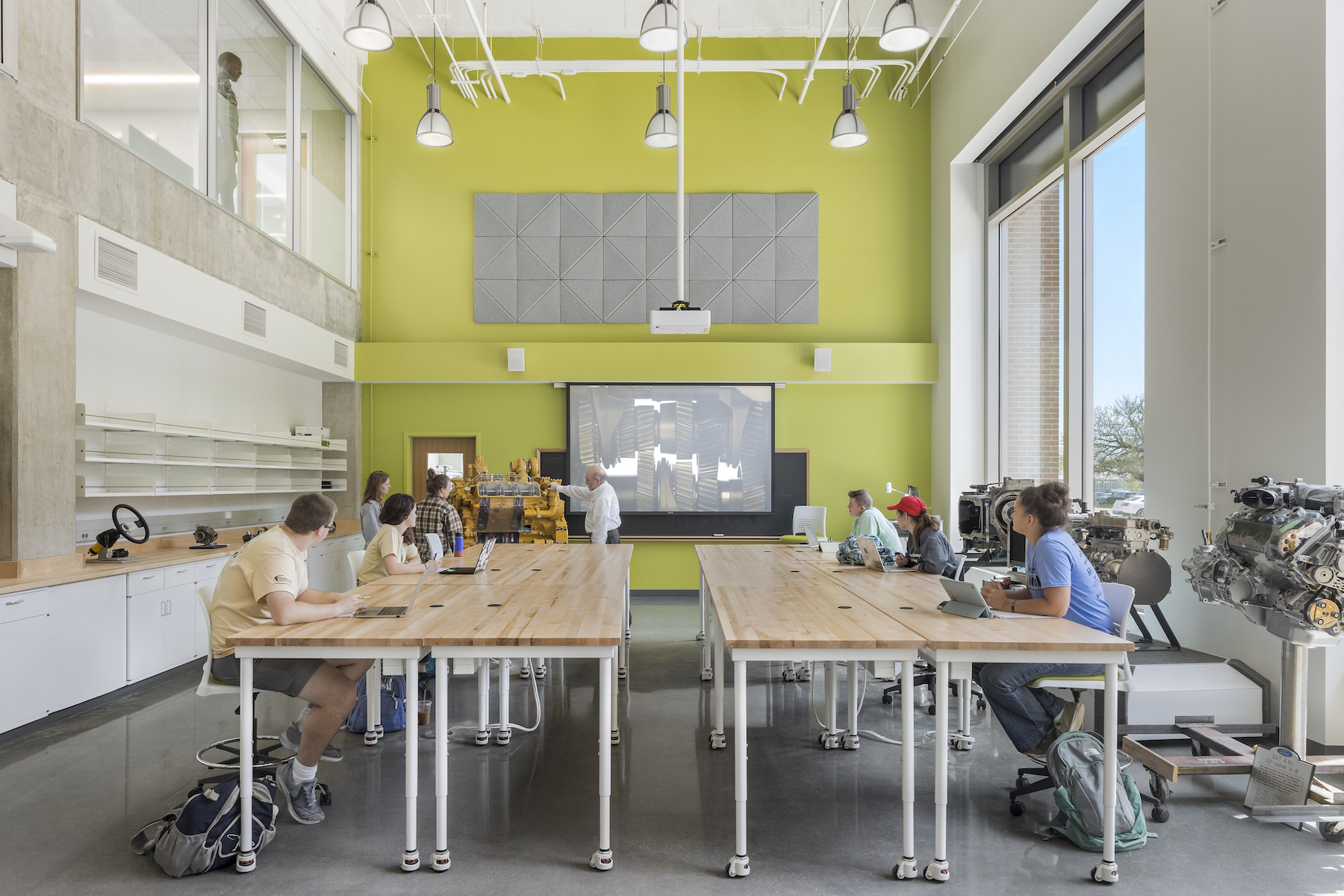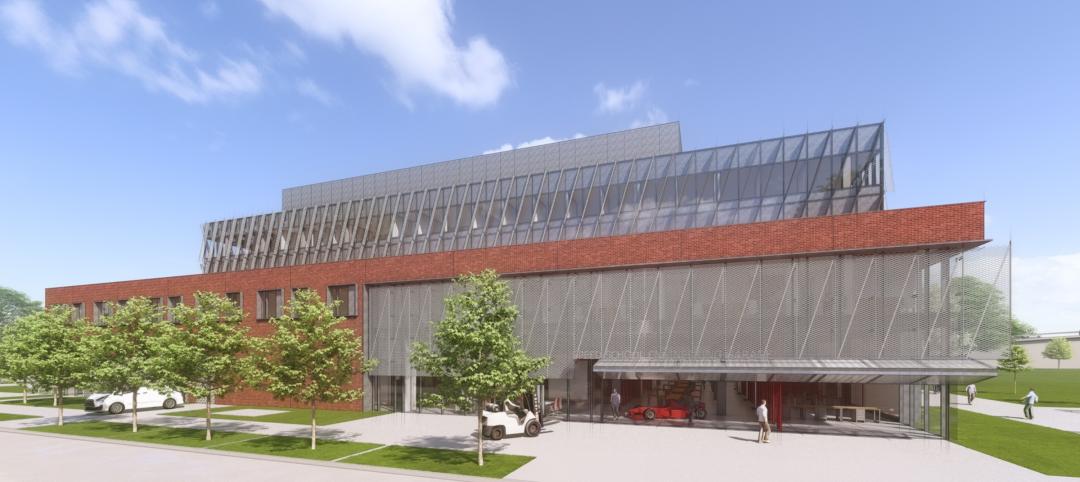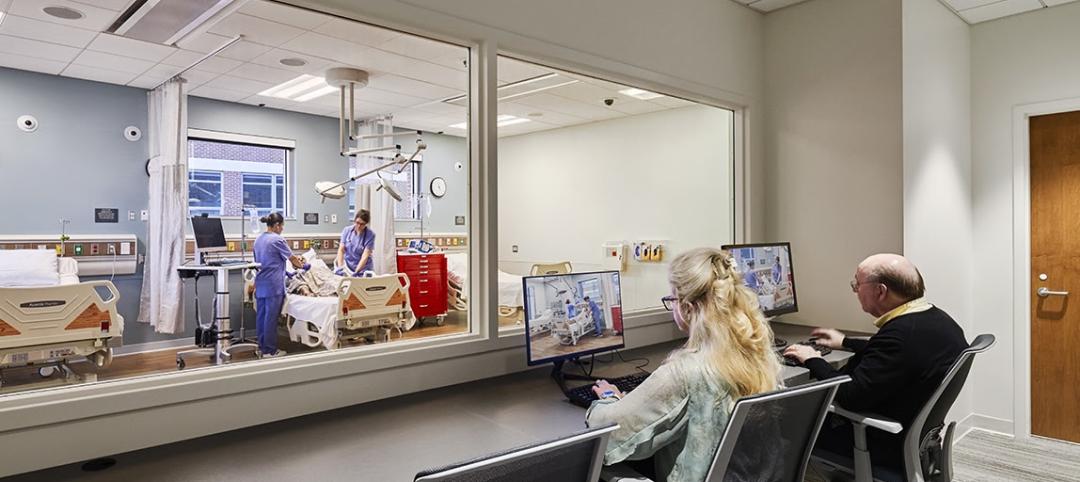While the debate persists among office workers and employers on when and how “return to work” will occur as the COVID-19 pandemic wanes, there is little doubt about what the nation’s 19.7 million college and university students are planning to do this fall.
They want out of mom and dad’s house. They want to be back on campus. And, it’s not up for debate, according to a survey of more than 1,500 college students by student housing developer and manager Core Spaces. The study, conducted among residents of Core Spaces properties across 14 states, showed that an overwhelming majority—92 percent—said they wanted to come back to campus when classes began for the spring 2021 semester, up from 89 percent in the fall 2020 semester. Moreover, nearly 88 percent said that they planned to go back to campus even if online/distance learning protocols were still in place. (Core Spaces has not released data for the fall 2021 semester, but we surmise that this sentiment will hold true.)
The rush back to campus places the pressure squarely on higher education institutions to maintain health and safety protocols campus-wide to help prevent the spread of the coronavirus. In fact, public health and safety just might be the new in-demand amenity at U.S. universities and colleges, according to a research study on college/university selection factors by JLL’s Higher Education team.
The JLL survey asked 500 parents of high school-aged children who are currently evaluating higher education institutions to rank their top selection factors for choosing a school. Not surprisingly, “quality of academics” and “affordability of college or university” were cited most often by parents. The eye-opener was number three on parents’ wishlist—“campus cleanliness and indoor air quality”—which was cited as an “important” or “somewhat important” factor in the selection process by 84 percent of respondents. IAQ/cleanliness outranked more traditional selection factors like location, campus housing options, financial strength of the school, diversity of the student body, and commitment to sustainability.
Admittedly, most parents—59 percent—said that they did not consider campus air quality a factor prior to the COVID-19 pandemic. Ron Gregory, JLL Higher Education’s Executive Vice President North America, believes that prospective students and their parents will demand “the highest standards around cleanliness and air quality” from their school of choice.
JLL says cleanliness extends to the overall look and feel of the campus and the physical condition of the buildings. Nearly nine in 10 respondents—88 percent—said the physical condition of buildings was important; 86 percent for campus condition.
“While transparency around campus cleanliness and air quality remains top of mind, the way prospective students and their families perceive the health and safety of the campus based upon appearance could also play a pivotal role in the decision process,” the study’s authors wrote.
The survey also sheds light on the growing importance of sustainability on college campuses. More than a fifth of parents—21 percent—indicated that the pandemic raised their awareness of a school’s overall commitment to sustainability.
Related Stories
University Buildings | Jul 17, 2024
University of Louisville Student Success Building will be new heart of engineering program
A new Student Success Building will serve as the heart of the newly designed University of Louisville’s J.B. Speed School of Engineering. The 115,000-sf structure will greatly increase lab space and consolidate student services to one location.
University Buildings | Jul 11, 2024
3 considerations for designing healthy, adaptable student dining
Amanda Vigneau, IIDA, NCDIQ, LEED ID+C, Director, Shepley Bulfinch, shares three ways student dining facilities have evolved to match changes in student life.
Laboratories | Jul 3, 2024
New science, old buildings: Renovating for efficiency, flexibility, and connection
What does the research space of the future look like? And can it be housed in older buildings—or does it require new construction?
University Buildings | Jun 28, 2024
The American University in Cairo launches a 270,000-sf expansion of its campus in New Cairo, Egypt
In New Cairo, Egypt, The American University in Cairo (AUC) has broken ground on a roughly 270,000-sf expansion of its campus. The project encompasses two new buildings intended to enhance the physical campus and support AUC’s mission to provide top-tier education and research.
University Buildings | Jun 18, 2024
UC Riverside’s new School of Medicine building supports team-based learning, showcases passive design strategies
The University of California, Riverside, School of Medicine has opened the 94,576-sf, five-floor Education Building II (EDII). Created by the design-build team of CO Architects and Hensel Phelps, the medical school’s new home supports team-based student learning, offers social spaces, and provides departmental offices for faculty and staff.
Headquarters | Jun 5, 2024
Several new projects are upgrading historic Princeton, N.J.
Multifamily, cultural, and office additions are among the new construction.
Mass Timber | May 31, 2024
Mass timber a big part of Western Washington University’s net-zero ambitions
Western Washington University, in Bellingham, Wash., 90 miles from Seattle, is in the process of expanding its ABET-accredited programs for electrical engineering, computer engineering and science, and energy science. As part of that process, the university is building Kaiser Borsari Hall, the 54,000-sf new home for those academic disciplines that will include teaching labs, research labs, classrooms, collaborative spaces, and administrative offices.
Products and Materials | May 31, 2024
Top building products for May 2024
BD+C Editors break down May's top 15 building products, from Durat and CaraGreen's Durat Plus to Zurn Siphonic Roof Drains.
University Buildings | May 30, 2024
Washington University School of Medicine opens one of the world’s largest neuroscience research buildings
In St. Louis’ Cortex Innovation District, Washington University School of Medicine recently opened its new Jeffrey T. Fort Neuroscience Research Building. Designed by CannonDesign and Perkins&Will, the 11-story, 609,000-sf facility is one of the largest neuroscience buildings in the world.
University Buildings | May 10, 2024
UNC Chapel Hill’s new medical education building offers seminar rooms and midsize classrooms—and notably, no lecture halls
The University of North Carolina at Chapel Hill has unveiled a new medical education building, Roper Hall. Designed by The S/L/A/M Collaborative (SLAM) and Flad Architects, the UNC School of Medicine’s new building intends to train new generations of physicians through dynamic and active modes of learning.

















